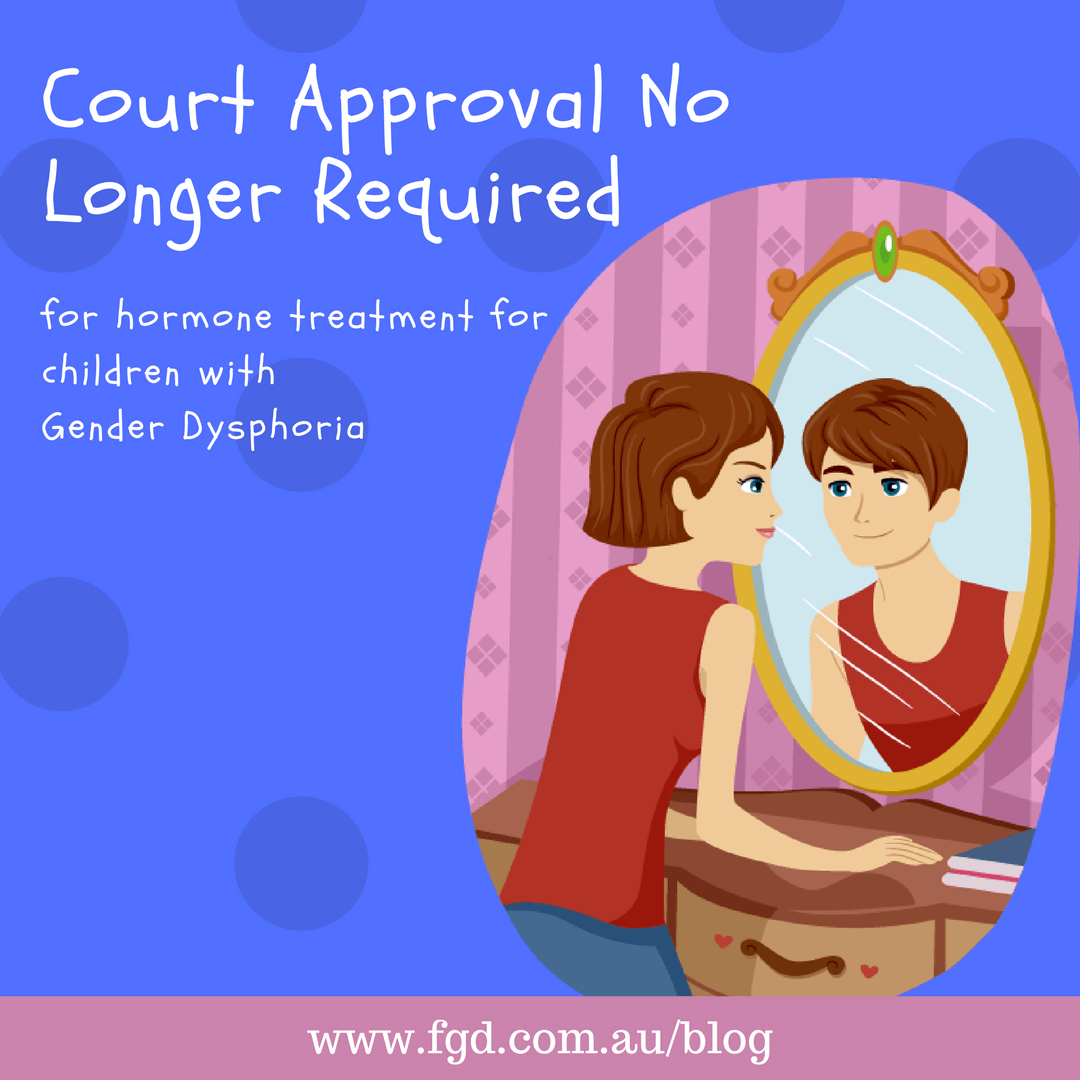
In a much-anticipated Judgment, the Full Court of the Family Court recently delivered a decision that means children with Gender Dysphoria seeking to undergo hormone treatment are no longer required to obtain prior Court authorisation.
Treatment for Gender Dysphoria is administered in two stages for children.
Stage 1 treatment uses “puberty blockers” to prevent the development of secondary sexual characteristics such as breasts and body hair, and they can be safely used for 3-4 years.
Stage 2 treatment is the administration of estrogen or testosterone and once treatment commences, the changes experienced are largely irreversible.
There is also Stage 3 treatment which is surgical intervention.
Stage 1 treatment is largely reversible. In 2003, the Full Court determined that Court approval was no longer required for Stage 1 treatment but that Court oversight was still required for Stage 2 treatment (Re Jamie (2013) FLC 93 – 547). This involved the Court determining whether the child was “Gillick competent” to consent to the treatment him/herself. We wrote a separate blog about what being “Gillick Competent” means in summary, the Court had to decide whether a child was of sufficient maturity and intelligence to fully understand what was proposed and consent to the Stage 2 treatment. This was required even when the parents of the child, the child and the child’s medical experts all agreed that hormone treatment is appropriate and necessary.
In this case, the child ‘Kelvin’ had been born female. When he was in year 8, Kelvin transitioned socially as a transgender person. He had fulfilled the criteria for Gender Dysphoria from at least the age of 9. He had not undergone Stage 1 treatment and had undergone female puberty. He is now 17 and with the support of his parents, wished to commence Stage 2 treatment.
This case means that children with Gender Dysphoria no longer need to involve the Family Court. If parents, the child and their medical professionals all agree that treatment is necessary, then treatment can be undertaken without Court intervention.
If you have questions about this topic, please email or call Kirsty on 02 6115 9000.

Kirsty McLeod is an Associate Director in our Canberra office.